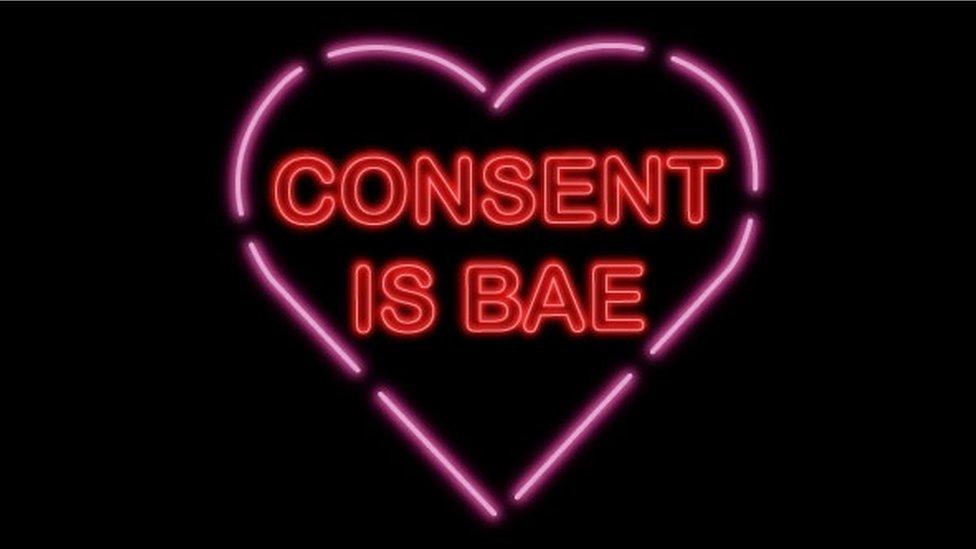Students in NI report unwanted sexual experiences
- Published
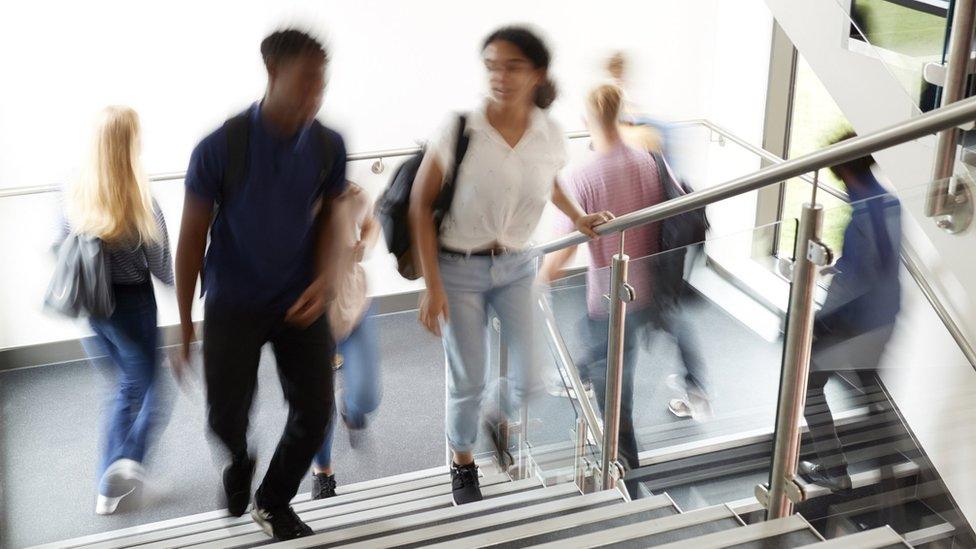
More than 1,000 students from QUB and UU completed a survey into their sexual experiences
Almost two-thirds of students in Northern Ireland who took part in a joint study reported an unwanted sexual experience.
That is according to research by academics from Ulster University (UU) and Queen's University Belfast (QUB).
More than 1,000 students from QUB and UU were surveyed for the UNSEENATUNI study.
Justice Minister Naomi Long said the findings were "alarming" and made for "uncomfortable reading".
The authors acknowledged those surveyed only represent about 2% of the entire student population at the universities.
The study also did not provide detail on where, or when in their lives, the students' experiences took place.
The findings are contained in the UNSEENATUNI report into Unwanted and Non-Consensual Sexual Experiences reported by university students in Northern Ireland.
Sir John Gillen, who conducted a major review into sex offence cases, had recommended that research should be commissioned on the prevalence, extent, nature and experiences of serious sexual offences.
Sir John had also recommended mandatory relationship and sex education (RSE) for children from a young age.
The UNSEENATUNI research aimed to identify the prevalence of unwanted sexual experiences (USEs) among students attending Northern Irish universities.
Those "ranged from unwanted sexual contact (e.g., kissing, groping), to attempted coercion, coercion, attempted rape, and rape"m according to the study.
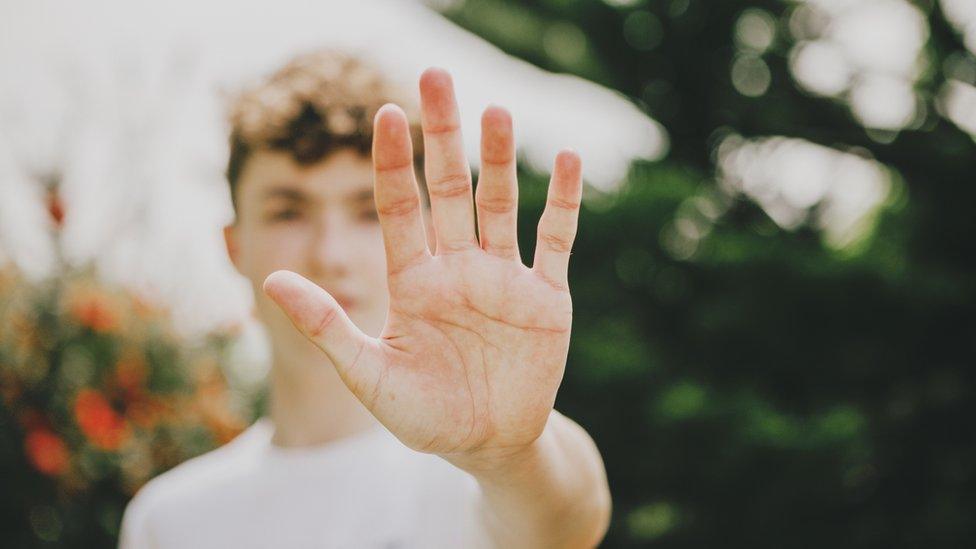
About one fifth of those surveyed were men who reported a lower instance of USE
The research also aimed to understand the impact of those experiences on students' mental health and wellbeing.
Overall, 1,033 students from QUB and UU completed a survey into their sexual experiences, as well as number of follow-up questions about the aftermath of their experiences.
The majority of participants were women - although about 20% were men - and about three-quarters were undergraduates.
"Out of 1,033 students, 679 (63%) reported experiencing at least one type of USE and 383 participants (37%) reported no experiences," the report said.
Unwanted sexual contact was the most common type of experience reported, but over four in 10 students who took part in the survey reported they had been raped.
Rates of USE were higher among female students than among male students.
'Rape myths'
Hundreds of those who took part chose to give further details about the aftermath of their experiences.
For instance, only half said they had told someone about their experience and only a tiny number - about 4% - had made a formal report to their university.
"A further concern is that many had not disclosed this experience to their university and were unaware of university sexual misconduct policies or where to find them, emphasising that current pathways to support remain unclear for those who need it most," the report said.
Of those students who said they had experienced an unwanted and non-consensual sexual experience, many reported poor mental health as a result.
That included anxiety, depression, harmful alcohol consumption and potential post-traumatic stress disorder (PTSD).
Those who took part also completed two questionnaires about their attitudes towards sexual consent generally, and their beliefs about sexual consent in the context of alcohol consumption.
The report said that most students "agreed that a person cannot consent fully when alcohol is involved and should not be blamed if they are subjected to a USE when alcohol is involved".
It also said that students were "acutely aware of issues surrounding sexual consent" but may not discuss it "in the context of a sexual encounter".
The study also asked students about "rape myths" which can lead to victims being blamed for their behaviour.
"Examples include that women who wear short skirts are 'asking for it' or that men who have been raped must be gay," the report said.
The study found that generally students who took part were aware "of the more common myths about rape and sexual violence".

Many students reported poor mental health as a result of their unwanted sexual experiences
The research was led by Dr Susan Lagdon from UU and Professor Cherie Armour from QUB, along with researchers Ngozi Anyadike-Danes from UU and Megan Reynolds from QUB.
The authors, however, acknowledged that the study was "not without limitations".
Those included the fact that while the sample size was large it still only represented 2% of the student population of both universities, and that the sample was "disproportionately female".
They also said that the nature of the study meant it attracted responses from a greater number of students who had experienced USEs.
'Unclear boundaries'
The report contains a number of recommendations.
It said students should be clear and informed about how to report unwanted sexual experiences and seek support, and universities should emphasize a zero-tolerance approach to sexual violence, harassment and misconduct.
Students who took part also recommended that Relationship and Sex Education (RSE) - including consent awareness - should be taught in an age-appropriate way to children from primary school onwards.
In a foreword to the report, the Justice Minister Naomi Long said the findings made for "uncomfortable reading".
"While the findings are alarming, I nonetheless welcome the publication of this research, as it is only when we start to recognise and acknowledge the challenge we face, that we can start to address it," she said.
"Many people are not clear about the boundaries of consent and I recognise that more needs done to educate and inform and to call out unacceptable and unwanted sexual behaviour."
- Published19 March 2022
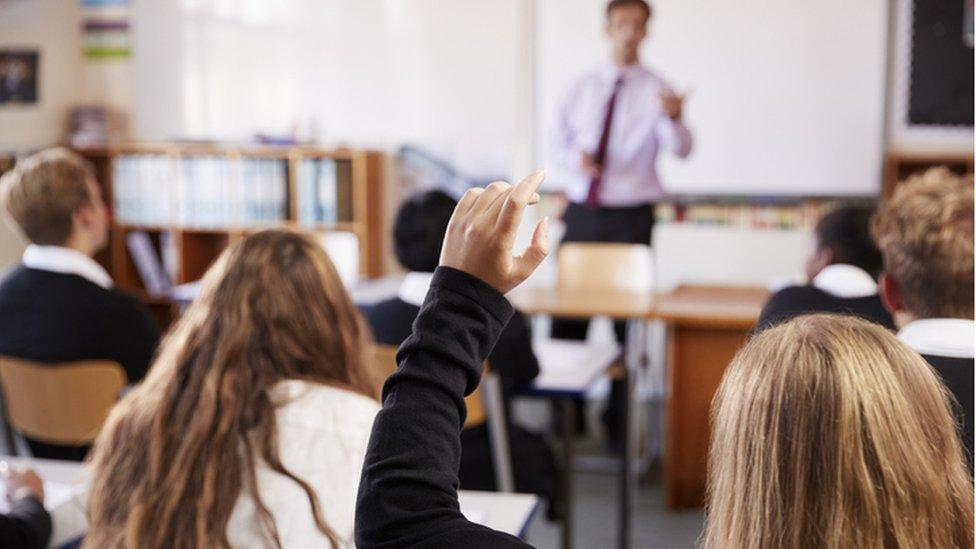
- Published8 May 2019
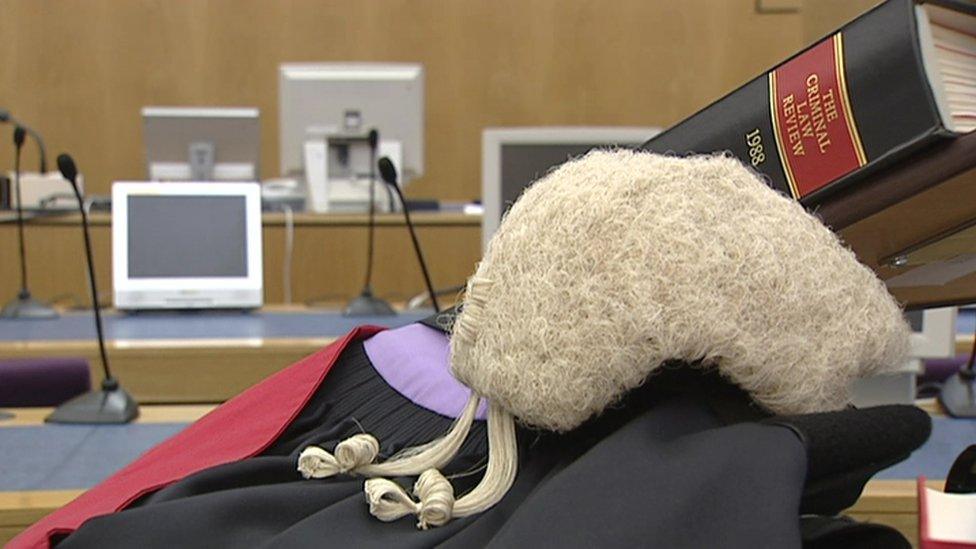
- Published28 October 2016
